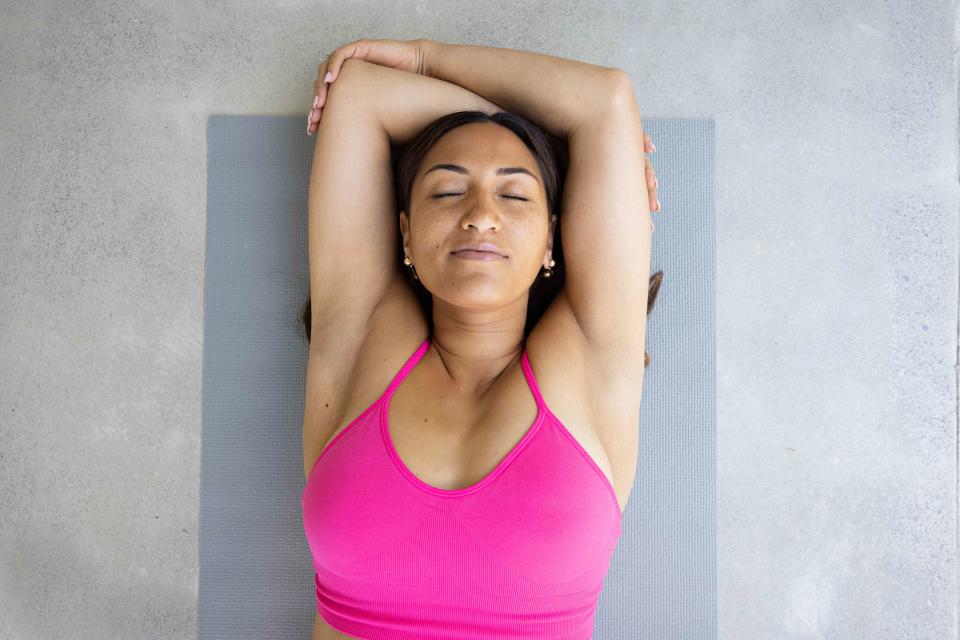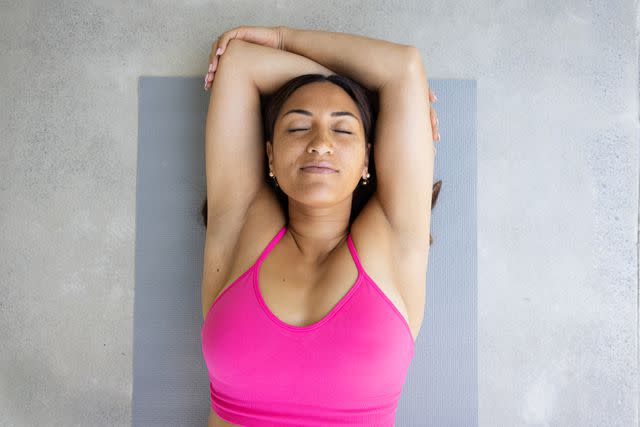Not Getting Enough Sleep Can Undo the Brain Benefits of Exercise, Study Finds
Here's what you need to know.

Jessie Casson/Getty Images
Keeping up with an exercise regime takes a lot of work. Whether you wake up early to go for a run or get yourself to the gym after a long day at work, staying active is hard. But all that time and effort might not be paying off if you aren’t getting enough sleep. A new study shows that lack of sleep could negate some of the most important benefits of exercise: the brain benefits.
Related: All the Reasons Why Getting Enough Sleep Is Essential for Your Health
The recent study published in the Lancet Healthy Longevity Journal followed about 9,000 adults over 50, and found that people with more frequent, higher-intensity physical activity who slept less than six hours a night were more prone to cognitive decline. In other words, sleep deprivation canceled out the cognitive health benefits of exercise altogether.
On the flip side, findings showed that people with higher levels of physical activity and who slept between six and eight hours each night had better cognitive function as they aged, suggesting that their exercise had long-lasting benefits.
Related: How Well You Sleep Matters More Than How Much You Sleep—Here's How to Boost Your Sleep Quality

Jessie Casson/Getty Images
One in three Americans just don’t get enough sleep. So, how much shut-eye do you actually need? While the amount of sleep needed changes with age, the average person between 18 to 60 should get an average of 7 hours of sleep a night to promote optimal well-being and health, according to the Centers for Disease Control.
“As a nation, we are not getting enough sleep,” said Wayne Giles, MD, director of CDC’s Division of Population Health said in a statement. “Lifestyle changes such as going to bed at the same time each night; rising at the same time each morning; and turning off or removing televisions, computers, mobile devices from the bedroom, can help people get the healthy sleep they need.”
Here are some tips to help you get some more zzz’s:
Skip the late-night cocktail. It might make you feel sleepy and fall asleep more quickly, but it can affect REM sleep and make your sleep less productive.
Stick to a sleep schedule. Consistency of wake-up and wind-down times reinforces your body’s natural sleep/wake cycle.
Limit your naps. While a nap can be a good, necessary thing, it can interfere with nighttime sleep if it's too long or taken too close to bed time.
Make a restful environment free of disruptions by putting up blackout curtains, keeping the room cool with a fan, and using earplugs or a sound machine if needed.
So if you’re going to go through the trouble of exercising for your help, do yourself a favor and hit the hay on time—your brain will thank you!
Related: This Is What Good Sleep Hygiene Looks Like (and It Has Nothing to Do With Washing Your Sheets)
For more Real Simple news, make sure to sign up for our newsletter!
Read the original article on Real Simple.

